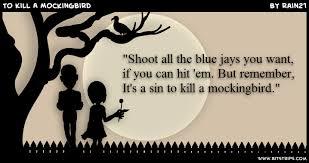Sense of humor can often be a funny thing; but this particular story is about a sense of humor failure and as such, less hilarious. Even at the age of 5 or 10 or 15, such a stunt would have seemed gimmicky. After crossing 40, it might be forgivable - at best - but forgotten, that seems nothing short of fantastical.
Frieha Altaf, a fashion model and entrepreneur, tells an Instagram tale, which offers an eerily fitting metaphor for a stereotype that has plagued Pakistanis for decades - one that many of us have been trying desperately to rid ourselves and our nation of – and then a story like this appears and undoes all the progress made so far: that is, the popular belief that we are a land of self-proclaimed “judges”, who revel in squandering a large part of our lives offering pro-bono verdicts, often on issues that don’t even remotely concern us. As a Pakistani, more than disappointed, I find it supremely frustrating to have one more, “impossible to defend” reason, for us to have to explain ourselves; this time, on two counts: firstly, for abusing our power by ridiculing others and secondly, being castigated for preaching one morality and practicing another. This particular social media tale offers incontrovertible, freewheeling fodder to our critics and its creator deserves to take a bow.
I’ve toyed with the Instagram story but remain baffled about why anyone would target people, who in no way, have wronged them? Was it plain boredom at the airport? Or wanting to become the innovative ring leader who started a new tradition of jeering? Or the age-old trick of bullying someone who isn’t your own size, then patting yourself on the back and enjoying the ego massage that no one else is willing to give to you?
The deep-seated irony that the same celebrity who jumped on to the #metoo bandwagon, to act as an honest broker for women subjected to third world misery, now decides to mock other people’s airport fashion, flagrantly building virality with “Don’t dress like that” and “So it's been a long time since we've seen a waistcoat on anybody. Except a Qawwal,” whilst capturing their posteriors on camera, is inescapable.
This tale demonstrates a classic case of imbibing a value system that suggests that two wrongs do in fact make a right. Allow me to explain. After the unanticipated troll storm that hit in the aftermath, Altaf took to Twitter to publicly apologize and part of her defense included, “in fashion we comment on clothes all the time and ive never had such an adverse reaction.Ppl take pics of me all the time put on social media n commented on them.” If everyone begins emulating the irresponsibility that they often fall victims t, we will be very nearly occupying the edge of chaos. Clearly, our role-models need a revisit.
I would imagine that even “fashion for dummies” would include, as one of its core modules, a disclaimer that fashion operates in the absence of rules, the emphasis remaining on being comfortable in one’s own skin. To my untrained fashion mind, a genuine fashion fanatic would never undermine another’s fashion statement just because it might be a departure from their own. Nor would they try and “control” - much like gate-keepers - its definition by offering normative scriptures for what should or should not be donned. They might instead, as Atticus Finch believed, “watch carefully, the magic that occurs when you give a person just enough comfort to be themselves.”
In an earlier interview, Altaf was asked if she likes being a role model. Part of her response stated that if you can give someone strength you’ve done a good job. I wish I hadn’t read this, because a couple of questions crop up in my head, answers for which I am relentlessly struggling to invent:
o As an aspiring role model, how, in any way, was she hoping to offer “strength” to the individuals whom she knowingly - or as she would have us believe - “inadvertently” mocked in those captioned pictures?
o Part of her Twitter apology reads: “I did not mean to hurt anyone's feelings.” The girls in the Sweet Valley High series, despite their age, were aware of their deliberate, unkind malice, each time they bullied their peers. Creativity and storytelling at events and on the ramp is a different beast; however, it will take a new kind of genius and a convenient miracle, to persuade people that the Instagram story was uploaded with the intent to “approve of” or “offer tribute to”, rather than “hurt” the subjects of her clandestine camera work. How credulous, precisely, are Pakistanis thought to be and how far will people go in trying to sandbag us?
o Worst of all, what if, by any stroke of misfortune, one of those individuals whom she photographed, happened to come across her Instagram story? In no language and in no part of the world, would this pass off as innocuous? Nonetheless, does it make the narrator “cool” or witty, I cannot say. The one thing that remains clear, though, is that whilst this was a solid attempt for people to laugh “with her”, many are in fact laughing “at her”.
It should hardly be surprising that a deafening silence haunts the celebrity world vis-à-vis this story; most equally privileged personalities, who otherwise drown out the internet with expressing cacophonous indignation at the injustice that surrounds us, will apple-polish her with the reassurance that they are on her side. Their caution, whether pardonable or not, stems from a possible fear of tarnishing an unwritten code that members of our socialite, fashion and entertainment fraternity share, should they dare to voice dissent.
However, despite the blatantly appalling act, I am in no two minds about not wanting to troll Altaf, as that would make my approach no superior than hers. The bigger issue is to acknowledge that there can be no cherry-picking of equality, by demanding justice only when women stand to gain from it. We cannot, on one hand, be the alleged flagbearers of women’s equality – swift to paint all Pakistani men with the same brush – but then expect to owe unequal accountability as our male counterparts. Genuine equality must extend to every realm alike and not offer, in its wake, the same discrimination against men that we women complain of.
Amidst the chaos, what often gets missed is the tragedy that misplaced clout, when employed for acts such as these, can go a long, often irreversible way in the reproduction of inequality and prejudice, in a homeland, already deeply scarred by friction and fissures, lurking three square meals from anarchy. It is incumbent upon those, with any degree of influence, not to help in preparing its final resting ground.
That Altaf has been a re-tweeter of the #timesup campaign couldn’t be more ironic. However, the outcry ignited at her Instagram story, indicates that time - for glib lip-service and overwhelming hypocrisy - is also up. The process of questioning, irrespective of status and hierarchy, has begun - and so, if nothing else, there is a silver lining to it all, of course, albeit at the expense of someone else’s dignity.
















